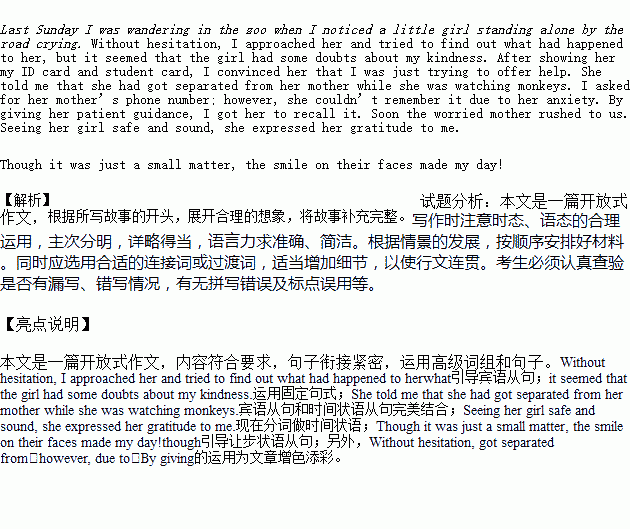题目内容
某英文杂志现举办英语故事续写大赛。请你根据所写故事的开头,展开合理的想象,将故事补充完整。注意:词数120左右(提示部分不计入总词数)。
Last Sunday I was wandering in the zoo when I noticed a little girl standing alone by the road crying.
____________________________________________________________________________________________
____________________________________________________________________________________________
____________________________________________________________________________________________
____________________________________________________________________________________________
____________________________________________________________________________________________
____________________________________________________________________________________________
____________________________________________________________________________________________
_______________________________________________________________________



 be
be